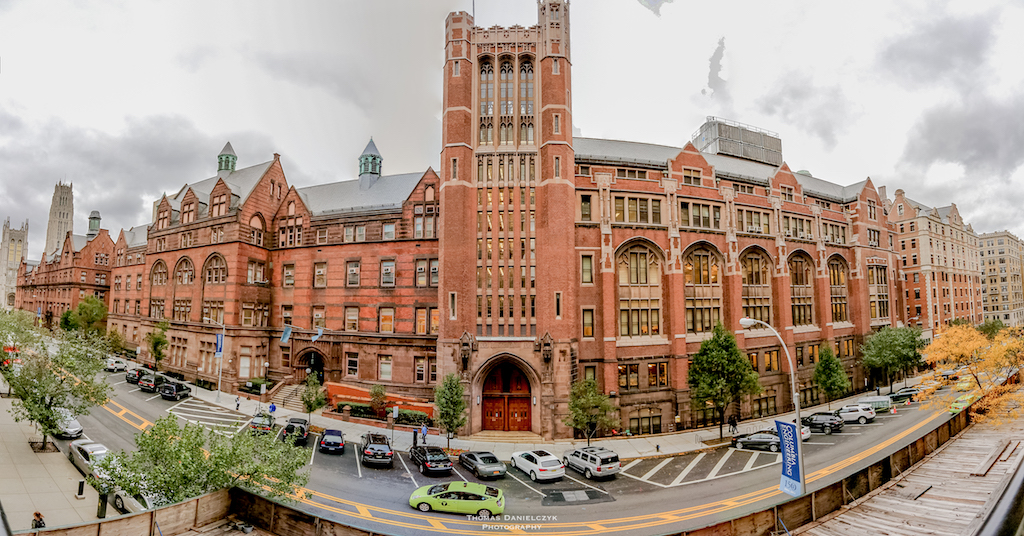

The Education Policy program at Teachers College, Columbia University prepares graduate students to face policy challenges in education at every level in the United States and around the world.
The degree programs in Education Policy examine both formal and informal institutions of schooling and the political, legal, bureaucratic, organizational, economic, and social factors that affect both schools and the broader educational enterprise. Students address critical problems affecting education, develop a broad and inclusive view of the kinds of issues facing policymakers, and are encouraged to study and reflect on the processes by which research becomes linked to policy and practice. Our graduates embark on policy careers in government agencies, national school reform organizations, non-profit groups dedicated to advocacy, private research institutes, and higher education institutions.
Premiered on November 27, 2023. If you would like to get the transcript of the EPOL open house webinar 2023, please contact David Estrella at epsaadmission@tc.columbia.edu at Admissions.
Our 33-credit M.A. degree focuses on the preparation of policy analysts, policy advocates, and education researchers. Student become experts in a range of educational policy issues and gain tools for policy analysis.
The advanced 60-credit Ed.M. is for students who have already acquired an M.A. with at least some coursework with education policy content. Graduate students focus on a policy area relevant to their interests.
The campus-based Ph.D. degree in Education Policy prepares its graduates to build new knowledge, teach new leaders, and craft new policies. The program may be completed in 75 credits, of which up to 30 credits may be transferred from another graduate institution.
div.control-dots","adaptiveHeight":true,"appendArrows":".slick-carousel-11372500 .slick-carousel-control > div.control-arrows","prevArrow":" Previous ","nextArrow":" Next ">' data-config="">
div","variableWidth":true,"centerMode":true,"slidesToShow":1,"asNavFor":".slick-carousel-11282815-desc .inner-content-wrap","prevArrow":" Previous ","nextArrow":" Next ">'>
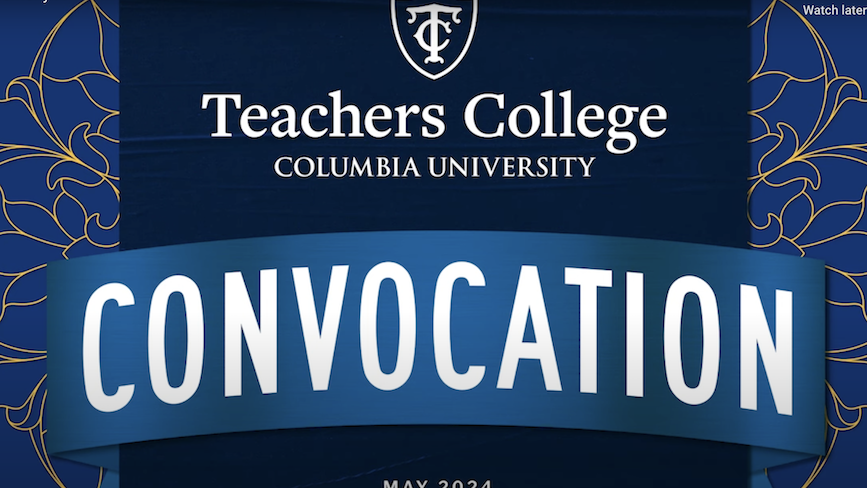
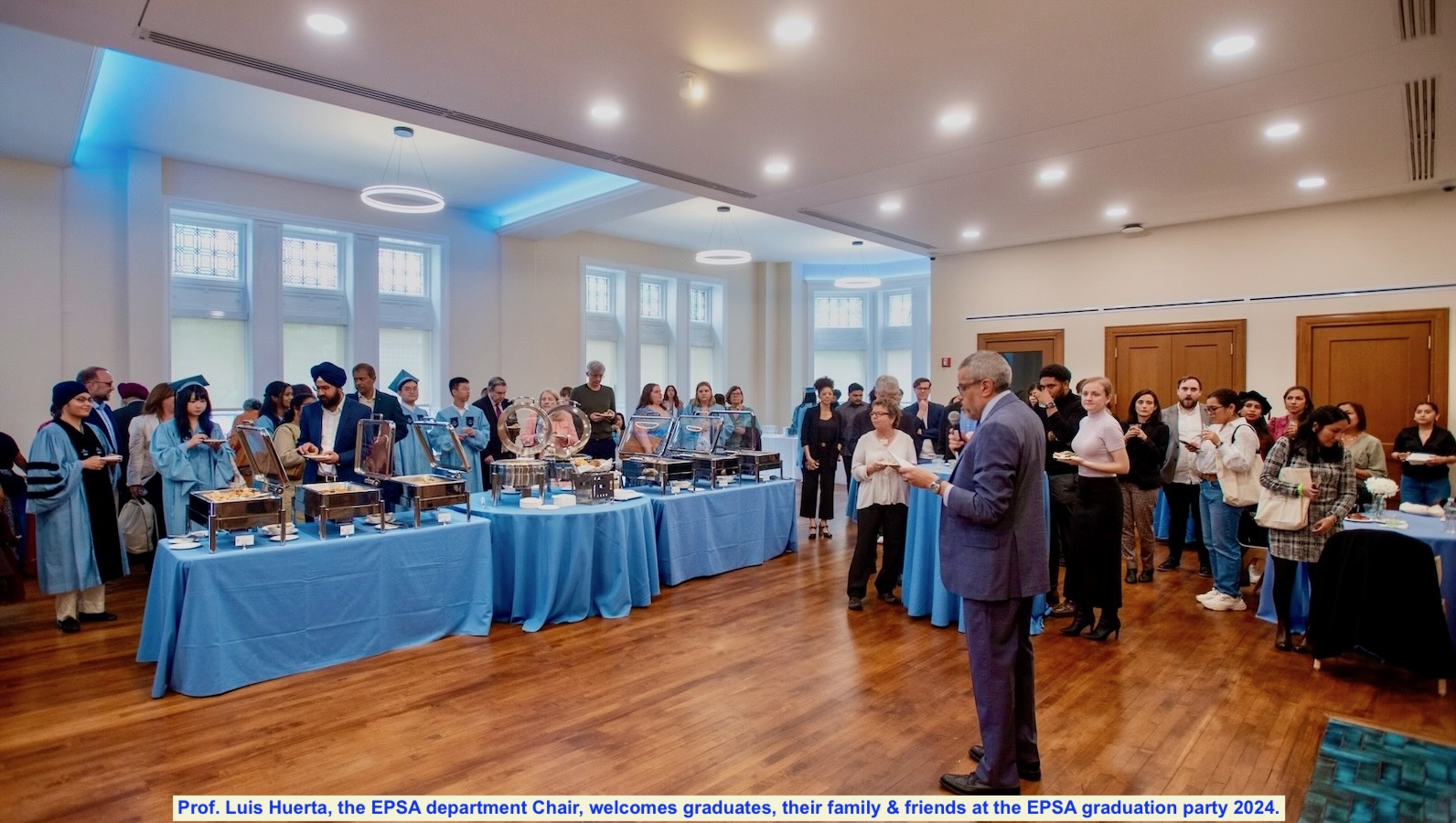
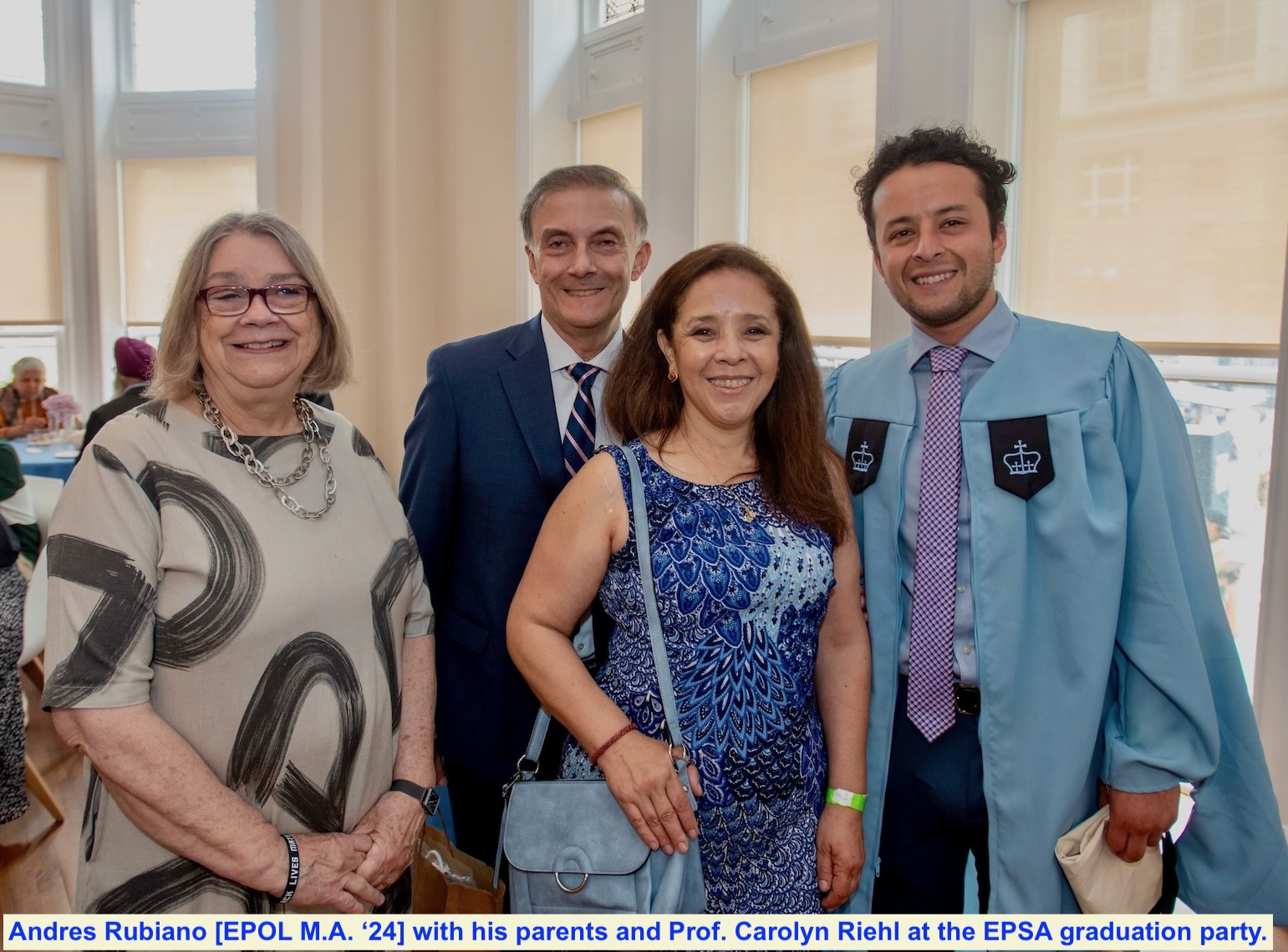
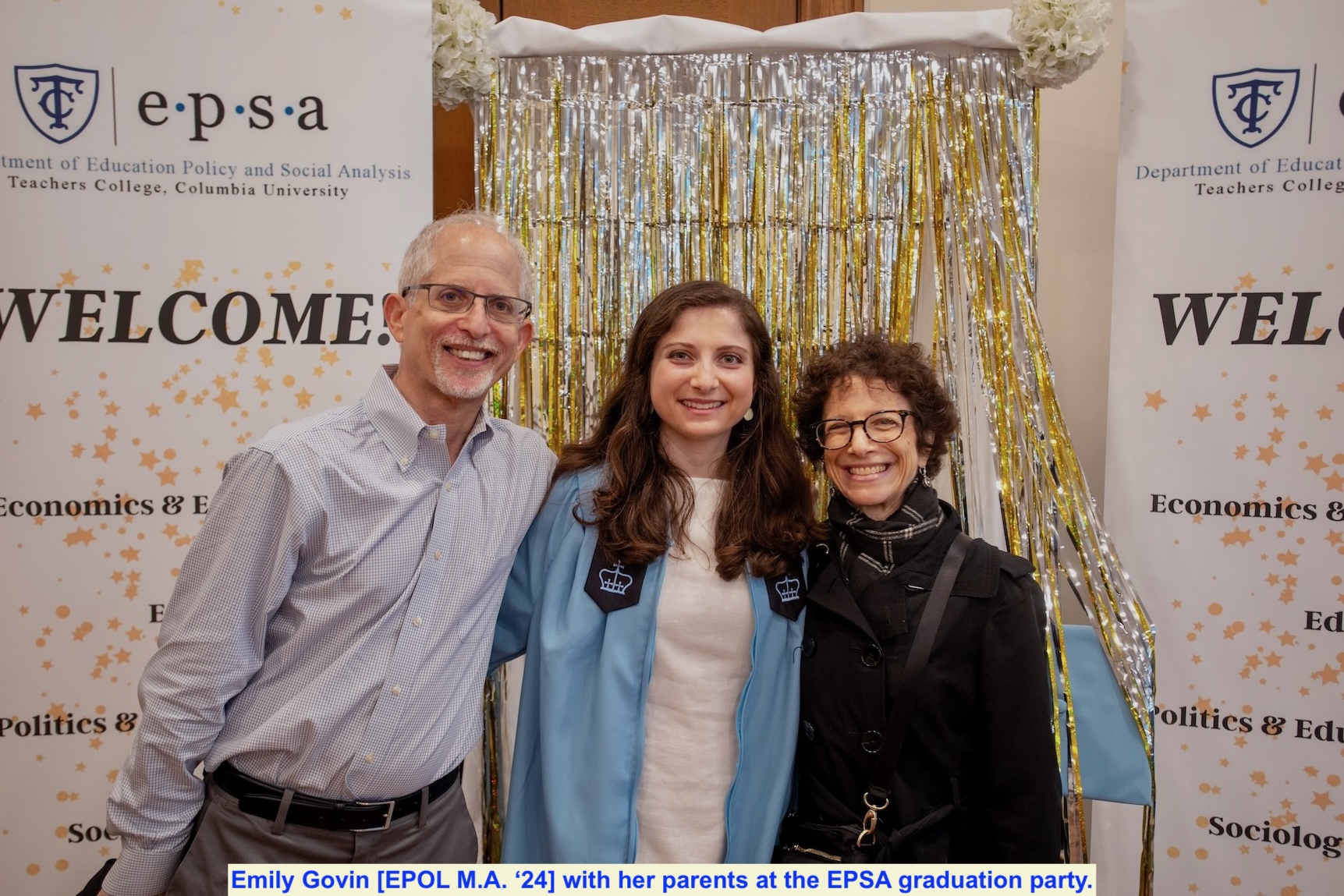
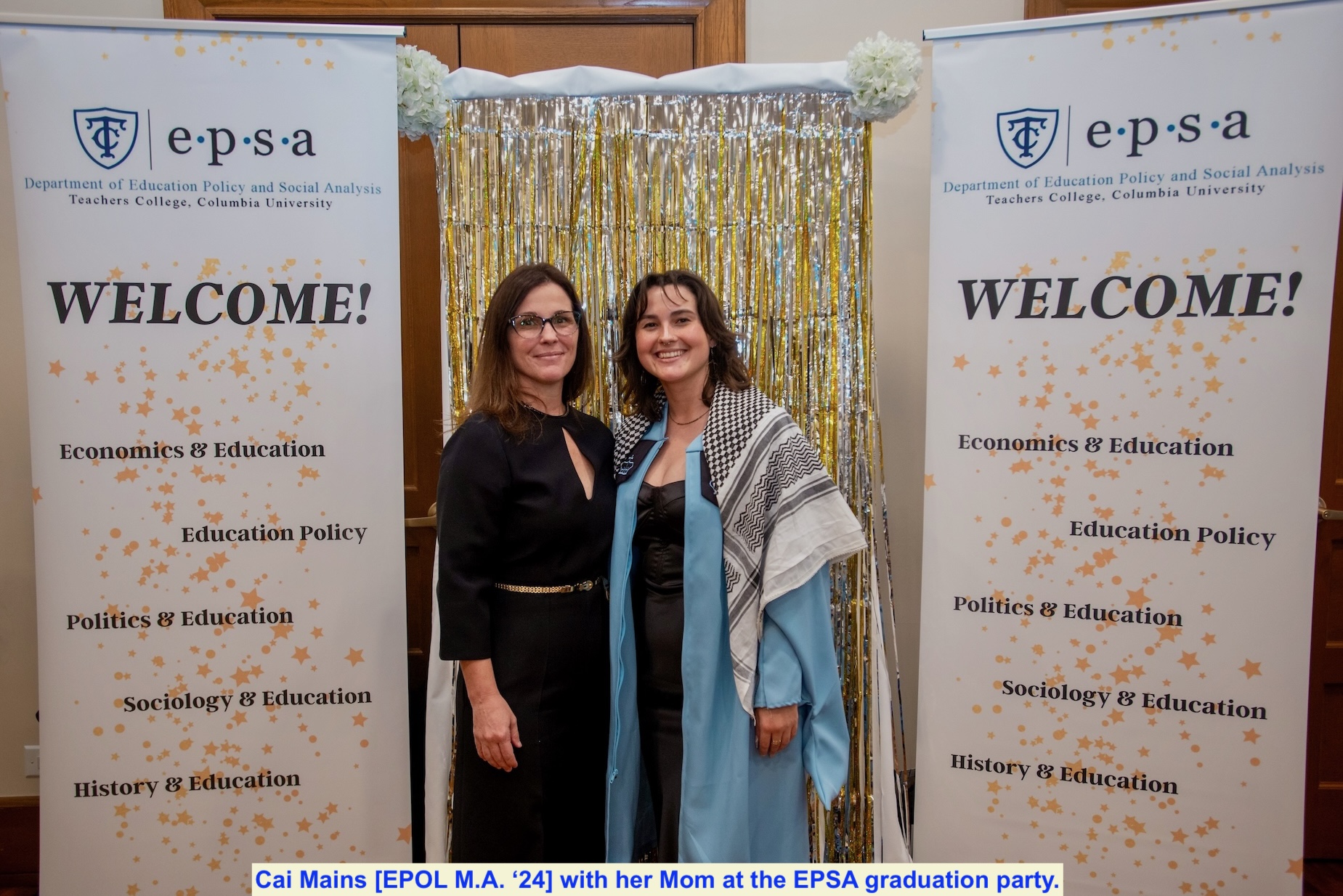
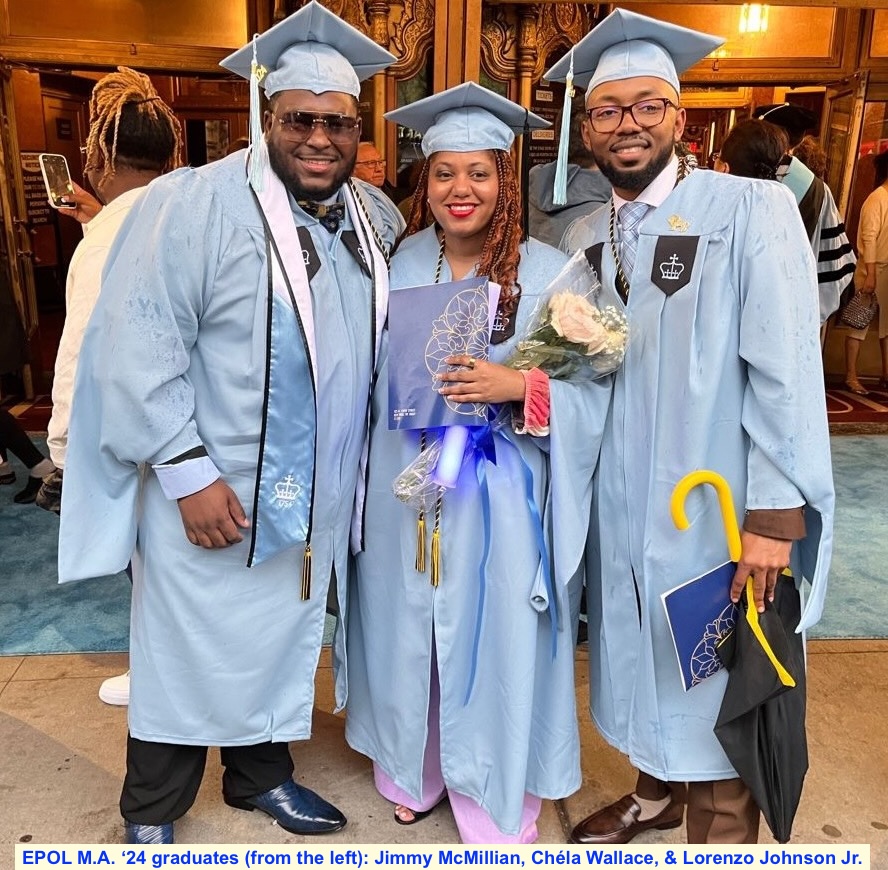
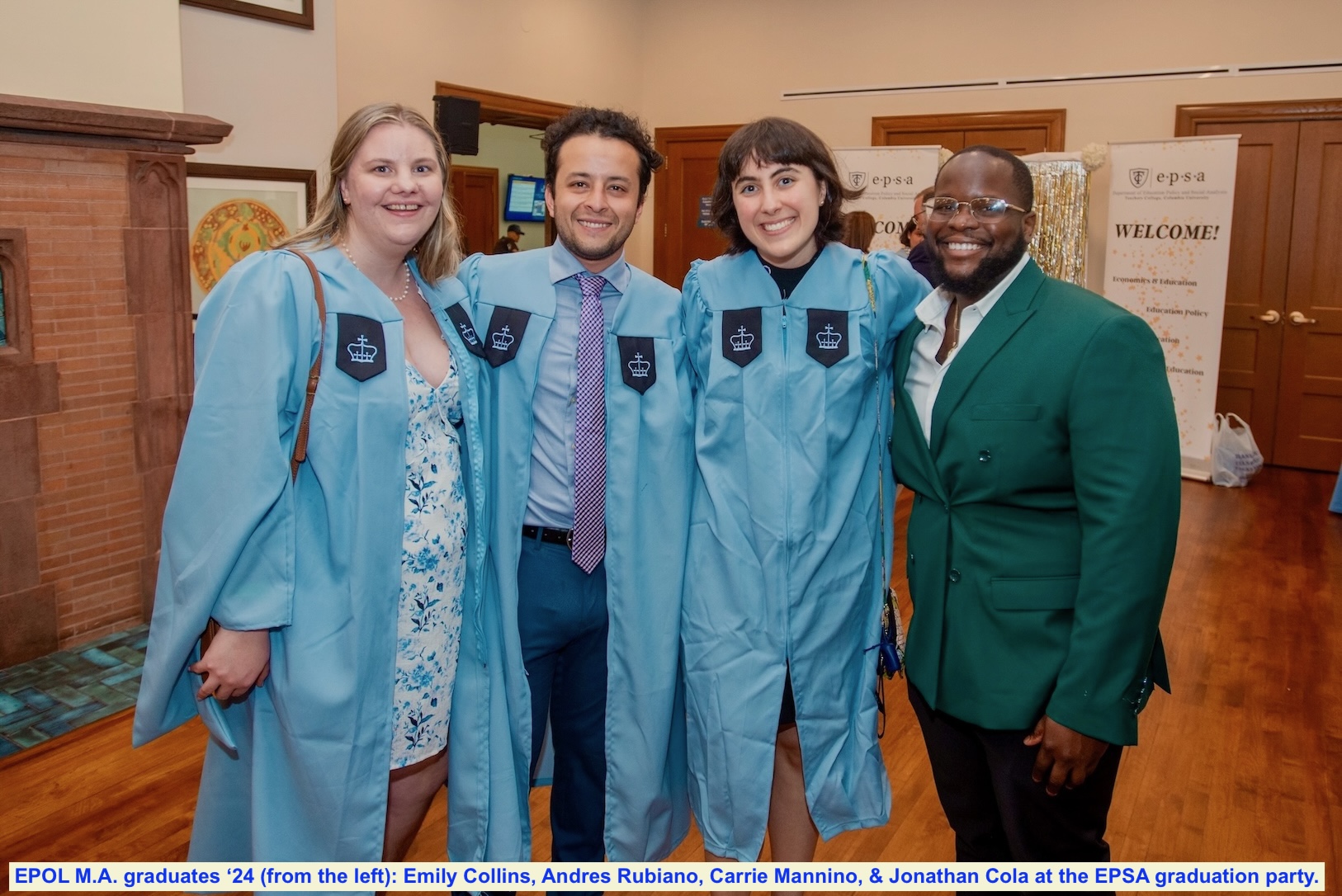
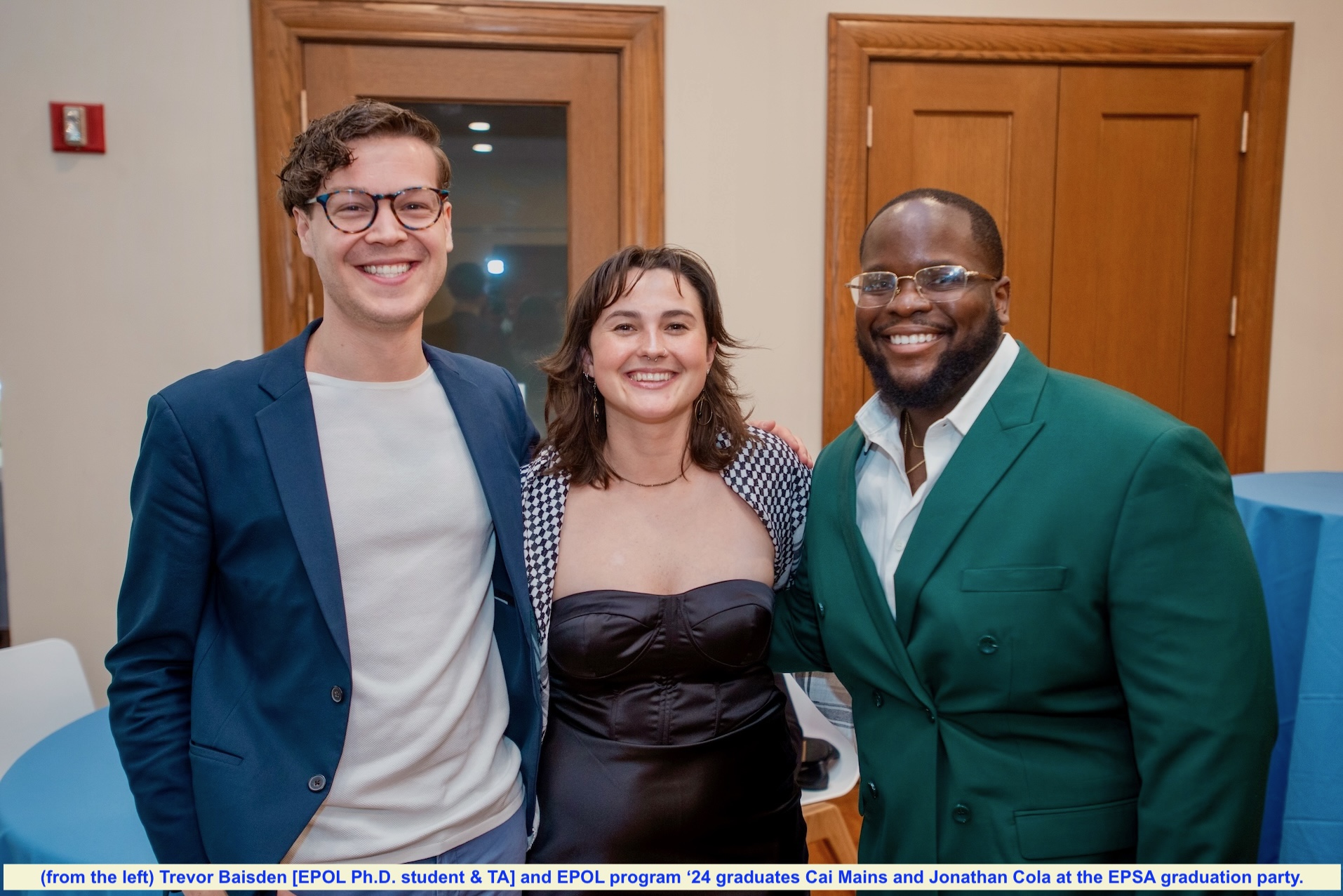
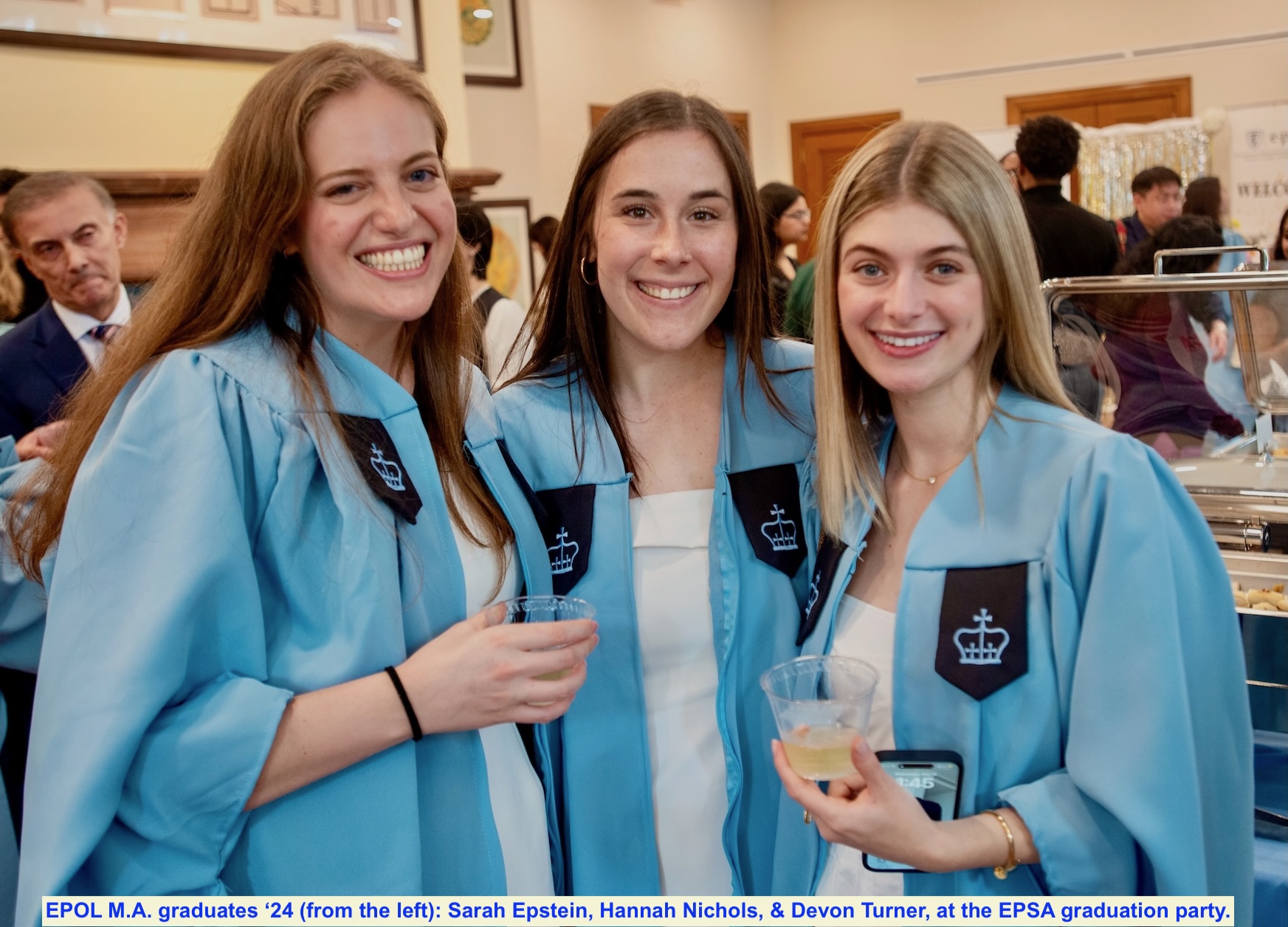
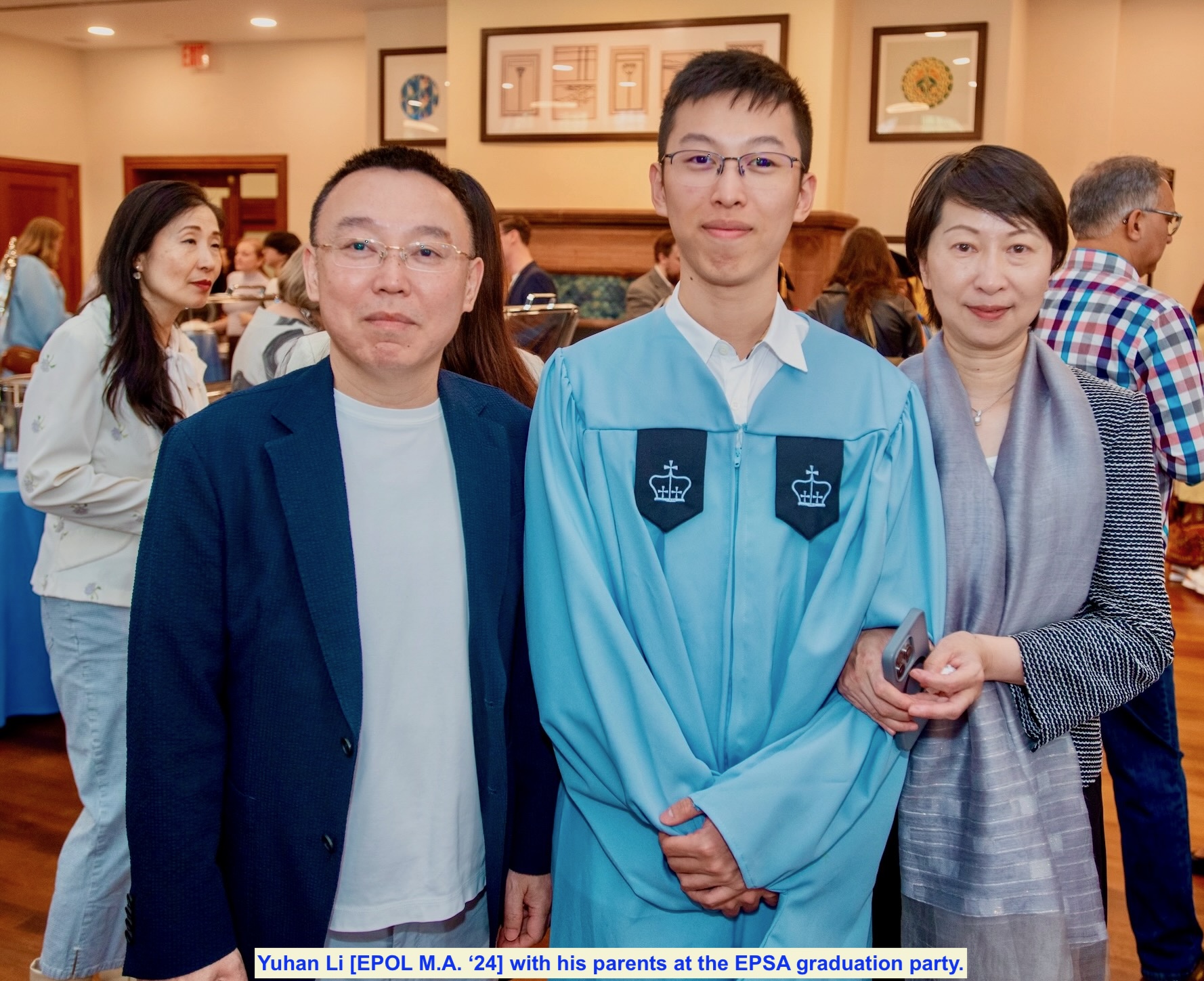
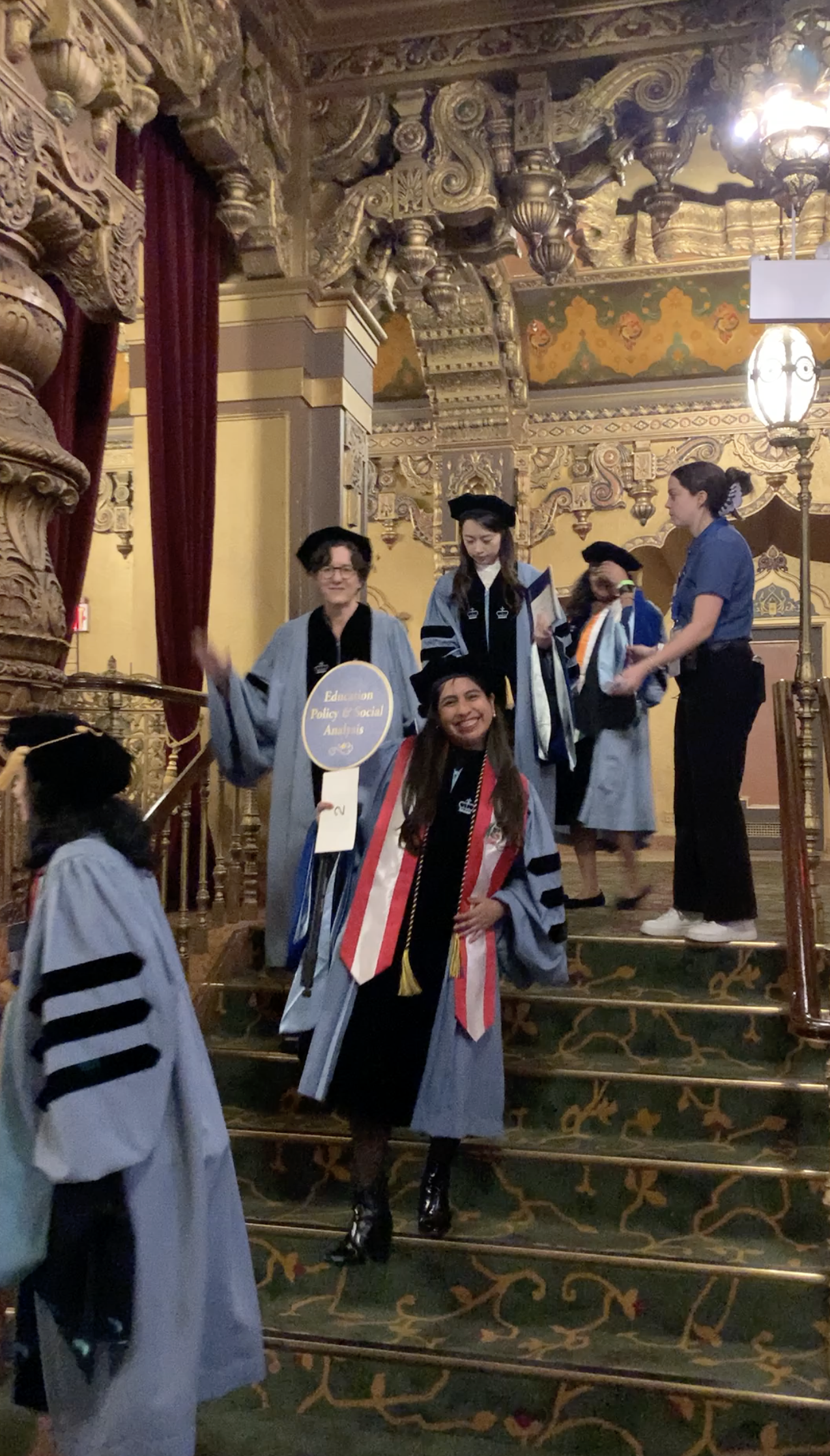
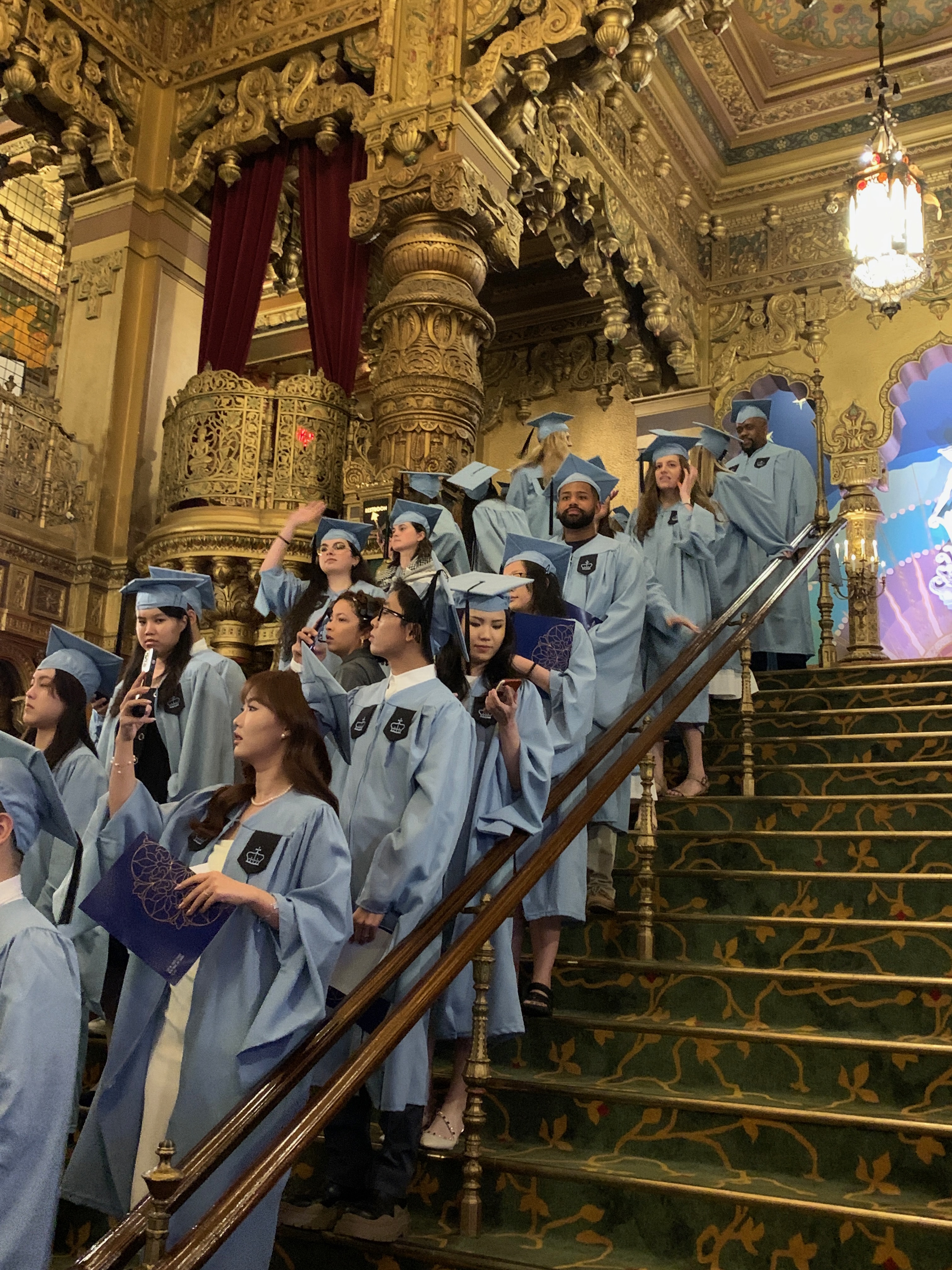
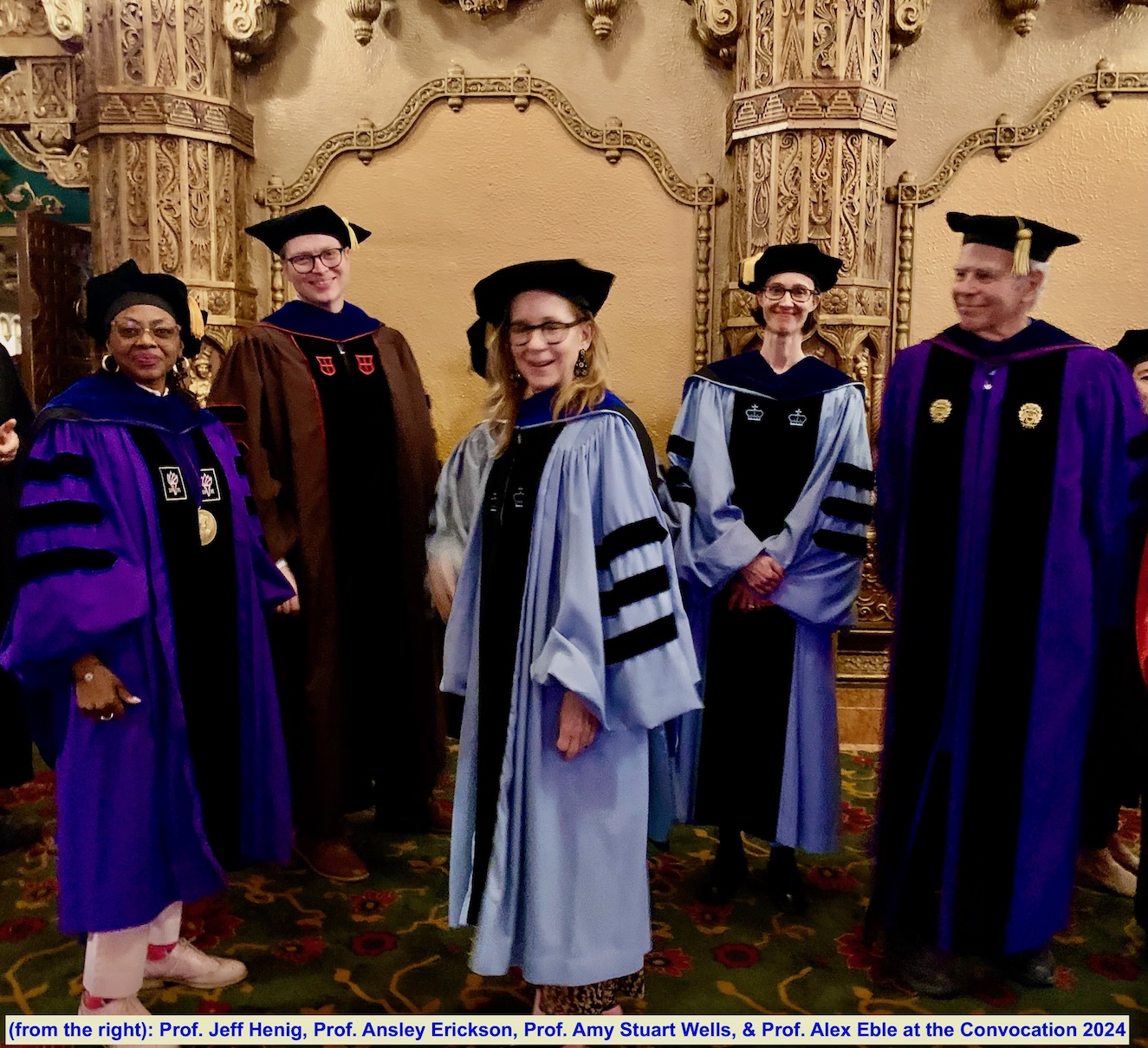
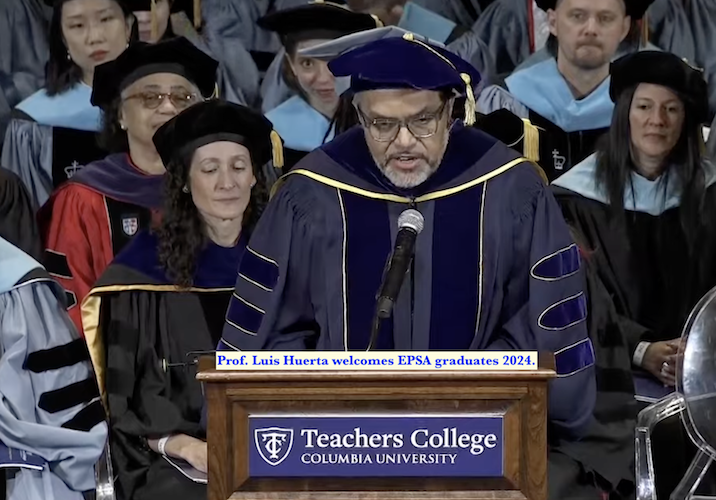

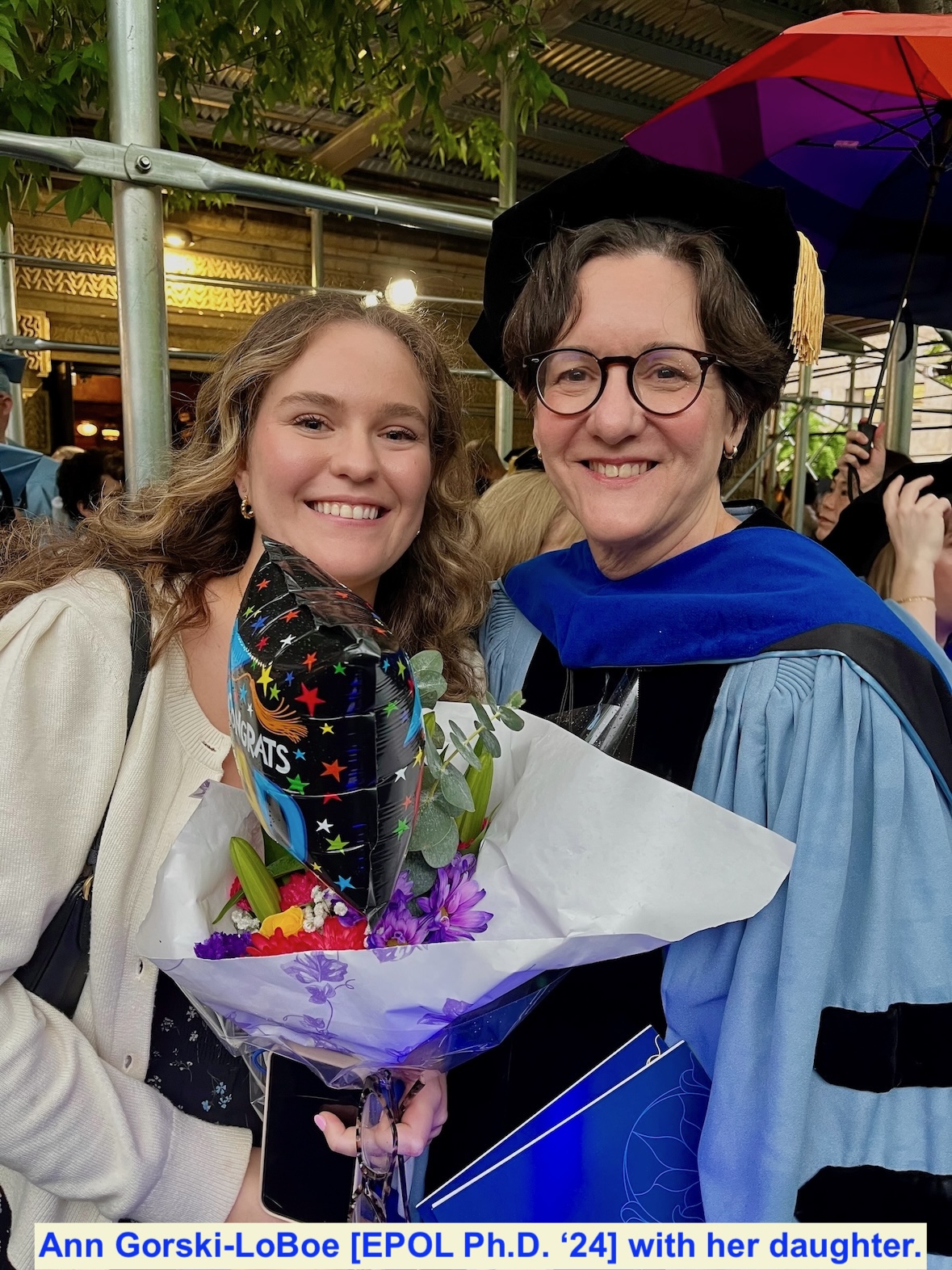
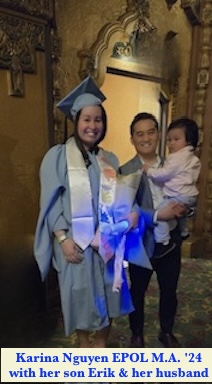
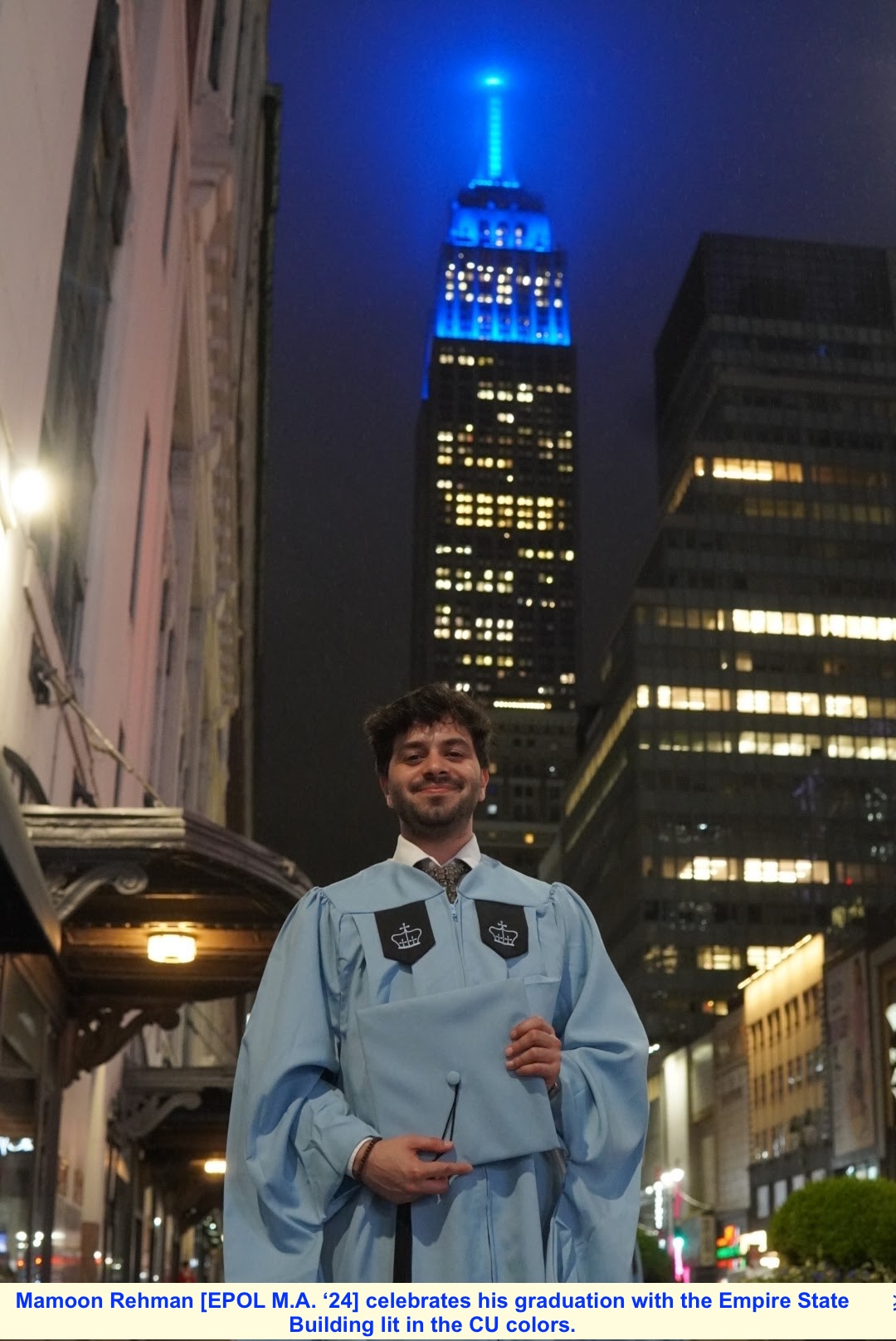
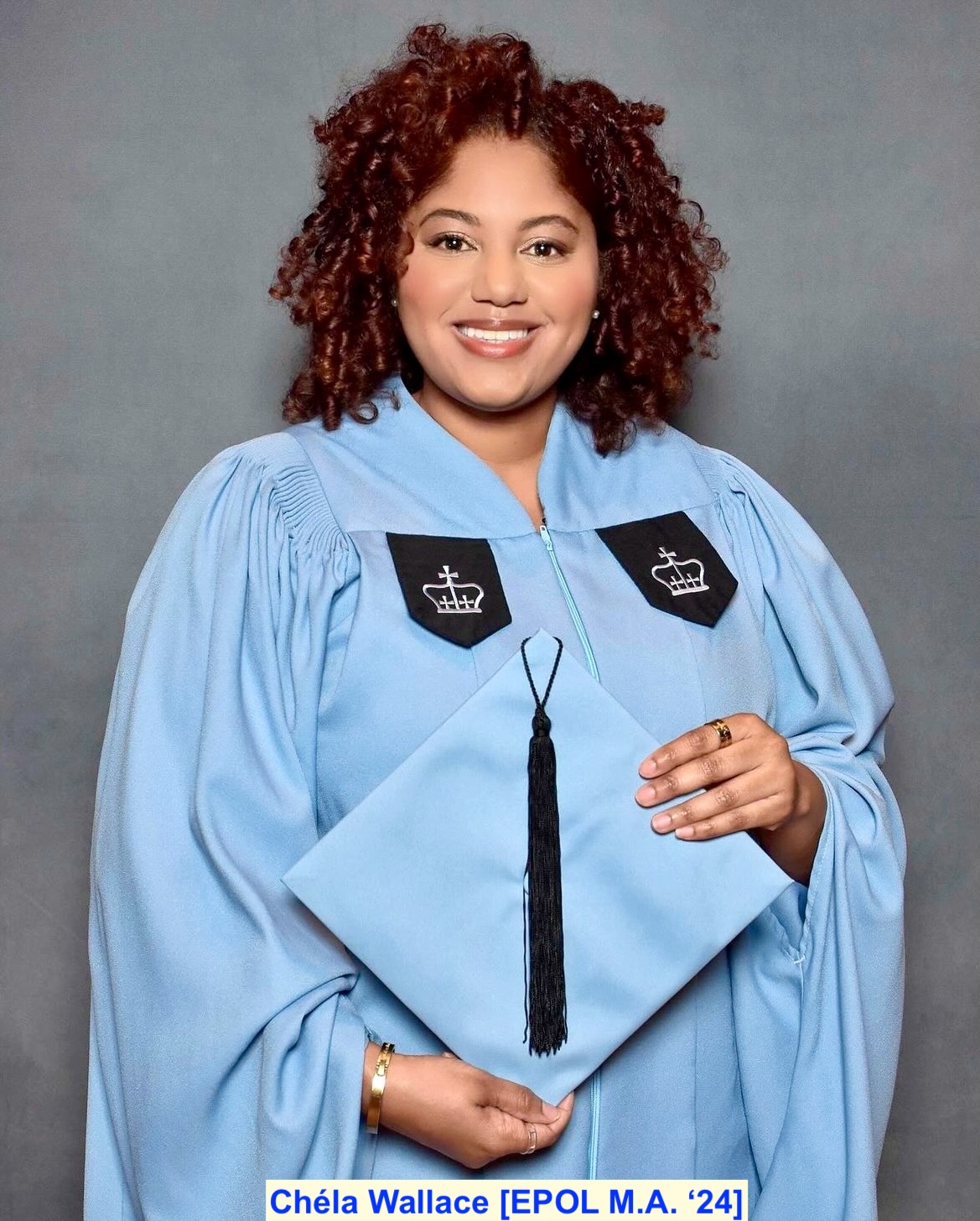
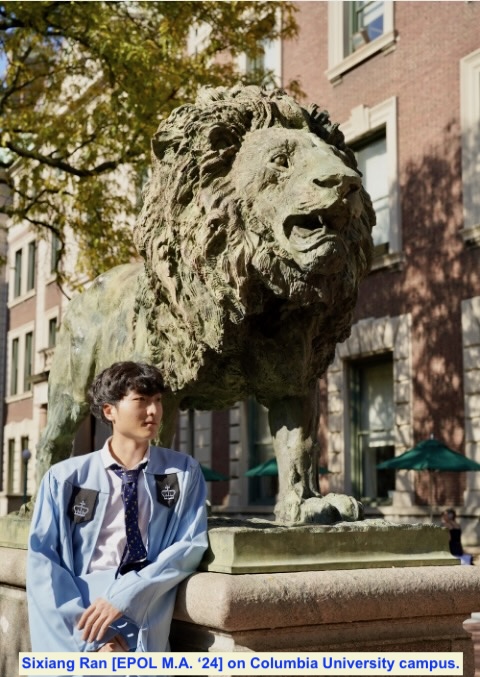


EDPA 4086, Law and Education: Regulation, Religion, Free Speech, and Safety.
Federal Policy Institute Group Photo in front of the U.S. Department of Education buildingThe purpose of the Federal Policy Institute is to examine three themes: the enduring values of American education, contemporary issues in national school reform efforts, and the role of the federal government.
Ed Policy home page 3 EDPA 6542 with Prof. Priscilla WohlstetterEDPA 6542, Education Policy Foundations Seminar.
Ed Policy home page 4 EDPA 6002 with Prof. Sarah CohodesEDPA 6002, Quantitative Methods for Evaluating Education Policies and Programs.
Jaunelle is a senior research scientist at NORC at the University of Chicago in the Education and Child Development Department. She leads economic evaluations and mixed-methods policy research studies. She is the principal investigator for the IES funded evaluation of the On-Ramp to Transitions program in Colorado, which builds an on-ramp to early high school graduation and successful postsecondary transitions for high-need students. She also is the co-principal investigator for The Cost Analysis in Practice (CAP) Project, which provides researchers and practitioners free on-demand tools, guidance, and technical assistance related to cost analysis.
Jaunelle has extensive experience evaluating implementation, assessing cost, and conducting cost-effectiveness analysis of school-based interventions using a mixed methods approach. She has examined non-academic supports in multiple contexts including post-secondary transitions, rural education, and postsecondary success. Jaunelle's expertise also extends to school finance and related studies focused on the cost of educational programs and interventions. Jaunelle was a 5th grade teacher before pursuing a career in research. She earned a M.A. in Politics and Education in 2012 and a Ph.D in Education Policy in 2017 at Teachers College, Columbia University.
Jaunelle Pratt-Williams Education Policy, Ph.D. 2017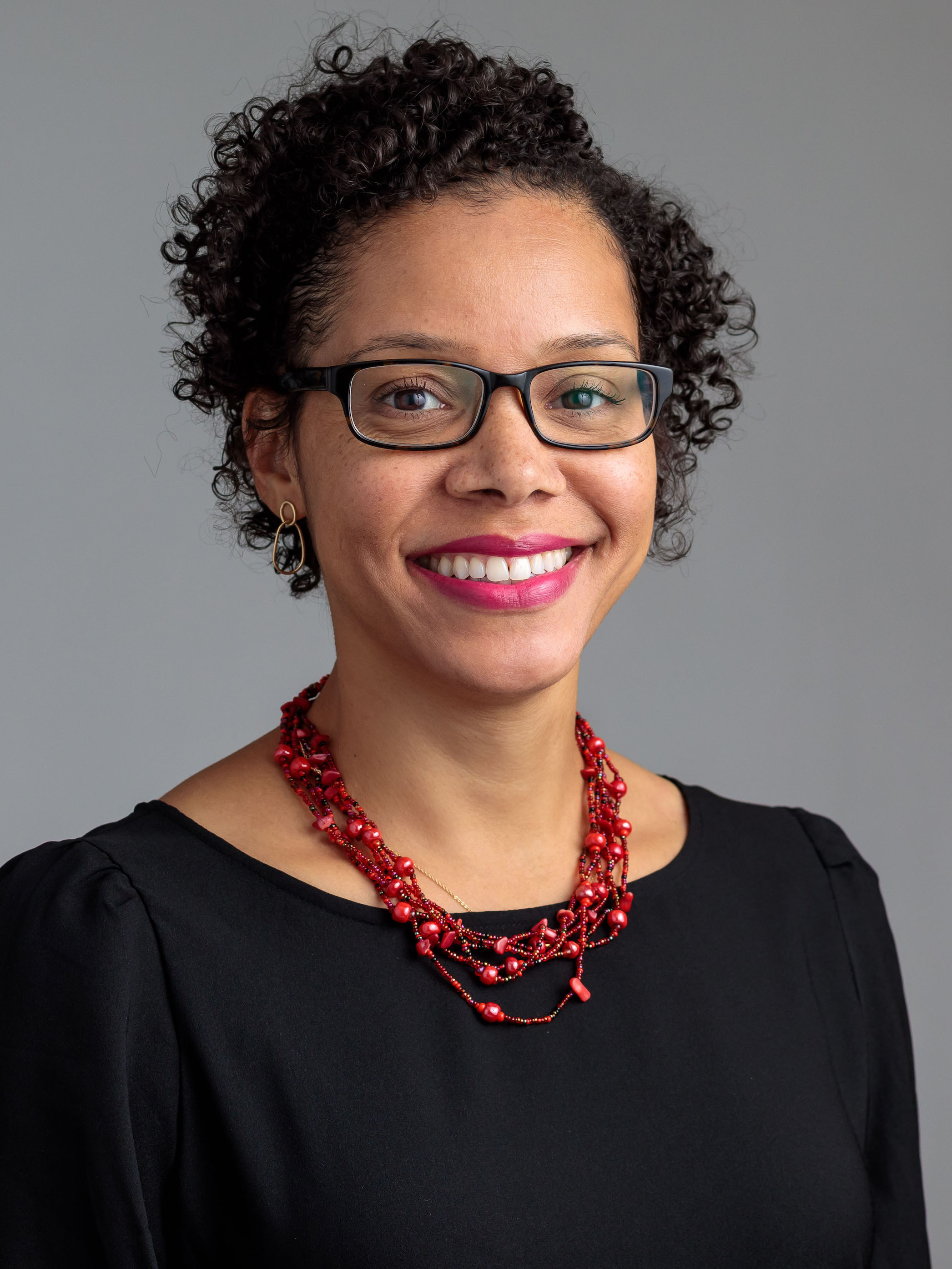
Jaunelle is a senior research scientist at NORC at the University of Chicago in the Education and Child Development Department. She leads economic evaluations and mixed-methods policy research studies. She is the principal investigator for the IES funded evaluation of the On-Ramp to Transitions program in Colorado, which builds an on-ramp to early high school graduation and successful postsecondary transitions for high-need students. She also is the co-principal investigator for The Cost Analysis in Practice (CAP) Project, which provides researchers and practitioners free on-demand tools, guidance, and technical assistance related to cost analysis.
Jaunelle has extensive experience evaluating implementation, assessing cost, and conducting cost-effectiveness analysis of school-based interventions using a mixed methods approach. She has examined non-academic supports in multiple contexts including post-secondary transitions, rural education, and postsecondary success. Jaunelle's expertise also extends to school finance and related studies focused on the cost of educational programs and interventions. Jaunelle was a 5th grade teacher before pursuing a career in research. She earned a M.A. in Politics and Education in 2012 and a Ph.D in Education Policy in 2017 at Teachers College, Columbia University.
Ph.D. studentB.A., Political Science, University of Rochester 2012
M.A.T, Childhood Education (1-6), Relay Graduate School of Education 2014
M.A., Sociology and Education, Teachers College, Columbia University 2022
Trevor Baisden is a Ph.D. student in Education Policy (K-12) at Teachers College, Columbia University and an associate at Columbia Law School’s Center for Public Research and Leadership, where he supports PK-12 policy and consulting projects. His research addresses the institutional and organizational dynamics of school change and continuous improvement, particularly in charter schools and schools serving sociodemographically diverse learners.
Trevor’s research interests have emerged from over a decade working in and with public schools across the country to improve outcomes and opportunities for historically educationally disenfranchised students and families. Since 2018, Trevor has led consulting engagements with more than 50 district and charter schools and youth-serving organizations in 12 states and Washington, D.C., working directly with system-level leaders to advance a wide range of school design, curriculum development, and instructional improvement projects.
Trevor began his career teaching at elementary and middle schools in Harlem and the South Bronx, where he led his students to achieve reading and math results in the top 3% of schools in the state. He later founded and led the History program at a citywide charter network, leading a team that provided curriculum, training, and instructional support to teachers and leaders across 15 middle schools.
Trevor Baisden Ph.D. student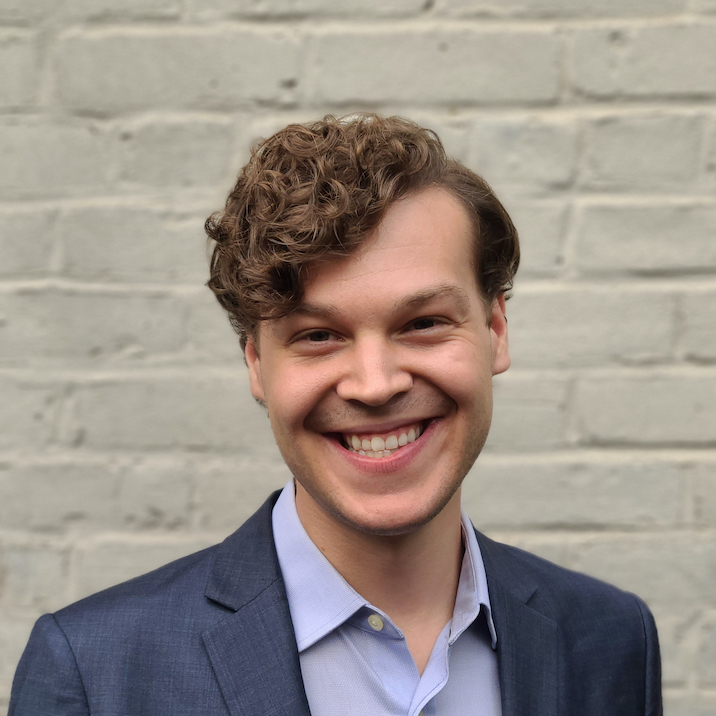
B.A., Political Science, University of Rochester 2012
M.A.T, Childhood Education (1-6), Relay Graduate School of Education 2014
M.A., Sociology and Education, Teachers College, Columbia University 2022
Trevor Baisden is a Ph.D. student in Education Policy (K-12) at Teachers College, Columbia University and an associate at Columbia Law School’s Center for Public Research and Leadership, where he supports PK-12 policy and consulting projects. His research addresses the institutional and organizational dynamics of school change and continuous improvement, particularly in charter schools and schools serving sociodemographically diverse learners.
Trevor’s research interests have emerged from over a decade working in and with public schools across the country to improve outcomes and opportunities for historically educationally disenfranchised students and families. Since 2018, Trevor has led consulting engagements with more than 50 district and charter schools and youth-serving organizations in 12 states and Washington, D.C., working directly with system-level leaders to advance a wide range of school design, curriculum development, and instructional improvement projects.
Trevor began his career teaching at elementary and middle schools in Harlem and the South Bronx, where he led his students to achieve reading and math results in the top 3% of schools in the state. He later founded and led the History program at a citywide charter network, leading a team that provided curriculum, training, and instructional support to teachers and leaders across 15 middle schools.
Specialization: Data Analysis and Research MethodsB.A. in Government, Georgetown University.
Working with Fe y Alegria schools in Peru and Partnership Schools in Harlem, the Bronx and Cleveland, Ohio changed the private school narrative for Ghipsel; the low-income non-public schools sparked Ghipsel’s interest in school choice. Ghipsel is focused on understanding the systems and processes that impact public funding for non-public schools and how these expand or constrict communities' education options.
Ghipsel spent over two and a half years observing classrooms, developing teacher and student workshops, and organizing school community events as part of Fe y Alegria, a non-profit school network in Peru advancing a larger popular education movement in Latin America. The rural communities of Quispicanchi, Peru posed a question for Ghipsel - where are the schools that would serve their community? The constraints on education access for students in Quispicanchi initiated Ghipsel’s commitment to working towards providing for all a quality education of their choice.
Committed to supporting non-public schools, Ghipsel joined Partnership Schools, a network of independent Catholic schools in New York and Cleveland, Ohio. Ghipsel supported the network’s growth over the course of four years; first when Partnership Schools adopted its seventh school in New York, followed by its growth to a national network by adopting additional schools in Cleveland, Ohio. Ghipsel began to notice the impact of state policies in non-public school funding and how these in turn enable student’s educational opportunities. Through her experience at Partnership Schools, Ghipsel used data to inform the network’s decision-making process and leaned into school leaders to understand the full story.
Ghipsel is continuing her education as a Teachers College Education Policy master’s student, pursuing the intersection of non-public schools and how data informs policy and program processes impacting an individuals’ choice on a quality education.
Ghipsel Cibrian Specialization: Data Analysis and Research Methods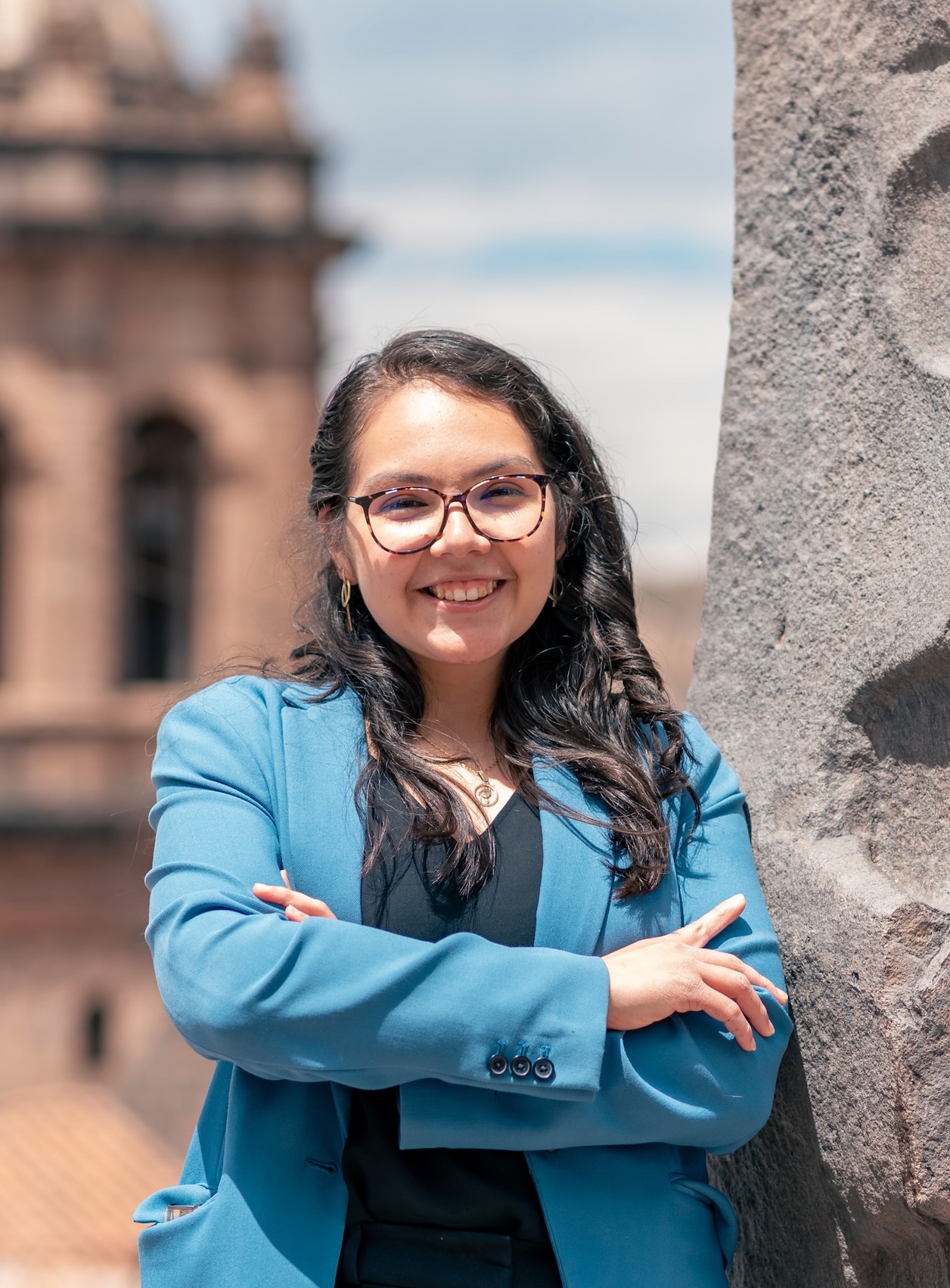
B.A. in Government, Georgetown University.
Working with Fe y Alegria schools in Peru and Partnership Schools in Harlem, the Bronx and Cleveland, Ohio changed the private school narrative for Ghipsel; the low-income non-public schools sparked Ghipsel’s interest in school choice. Ghipsel is focused on understanding the systems and processes that impact public funding for non-public schools and how these expand or constrict communities' education options.
Ghipsel spent over two and a half years observing classrooms, developing teacher and student workshops, and organizing school community events as part of Fe y Alegria, a non-profit school network in Peru advancing a larger popular education movement in Latin America. The rural communities of Quispicanchi, Peru posed a question for Ghipsel - where are the schools that would serve their community? The constraints on education access for students in Quispicanchi initiated Ghipsel’s commitment to working towards providing for all a quality education of their choice.
Committed to supporting non-public schools, Ghipsel joined Partnership Schools, a network of independent Catholic schools in New York and Cleveland, Ohio. Ghipsel supported the network’s growth over the course of four years; first when Partnership Schools adopted its seventh school in New York, followed by its growth to a national network by adopting additional schools in Cleveland, Ohio. Ghipsel began to notice the impact of state policies in non-public school funding and how these in turn enable student’s educational opportunities. Through her experience at Partnership Schools, Ghipsel used data to inform the network’s decision-making process and leaned into school leaders to understand the full story.
Ghipsel is continuing her education as a Teachers College Education Policy master’s student, pursuing the intersection of non-public schools and how data informs policy and program processes impacting an individuals’ choice on a quality education.